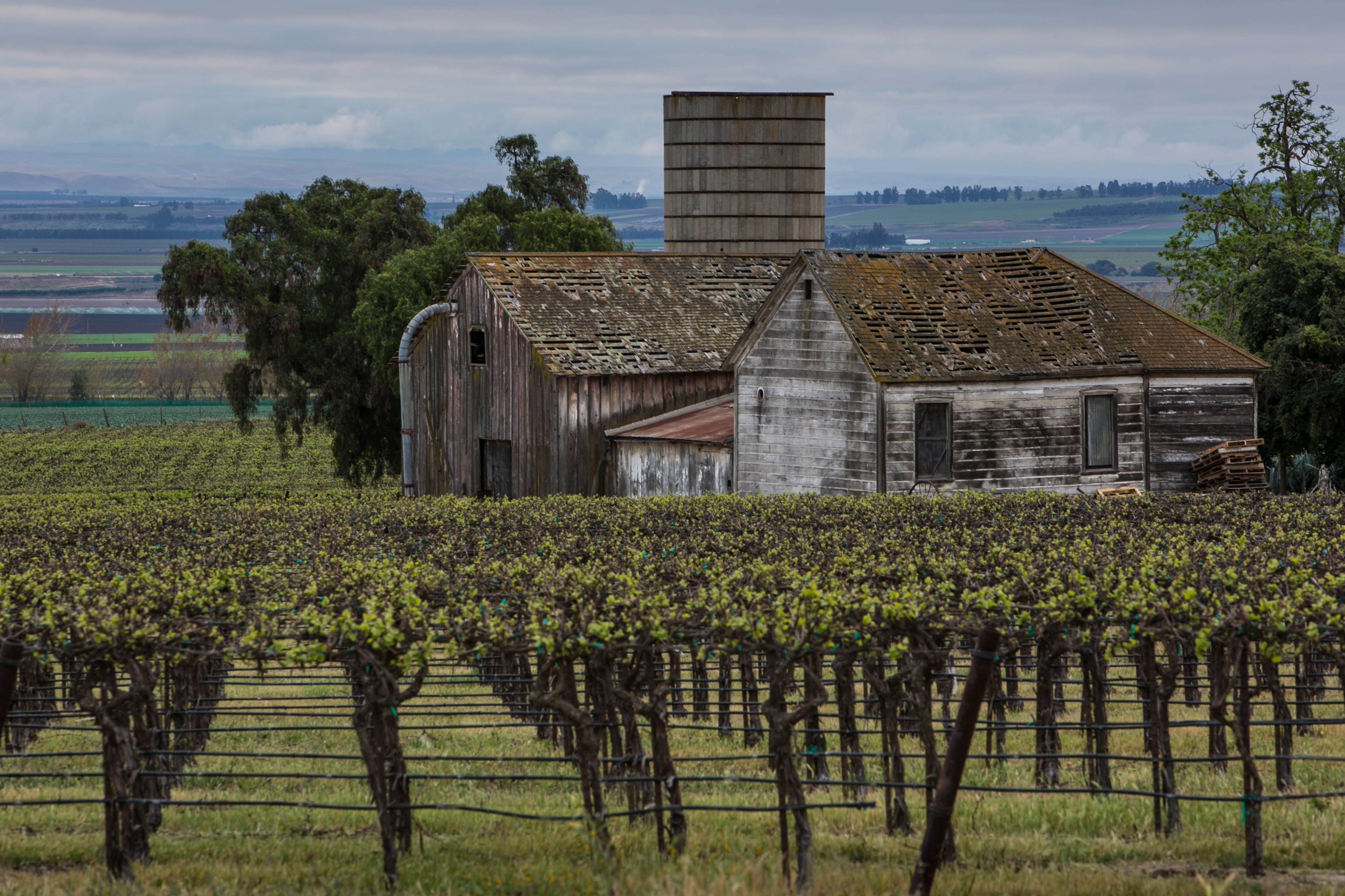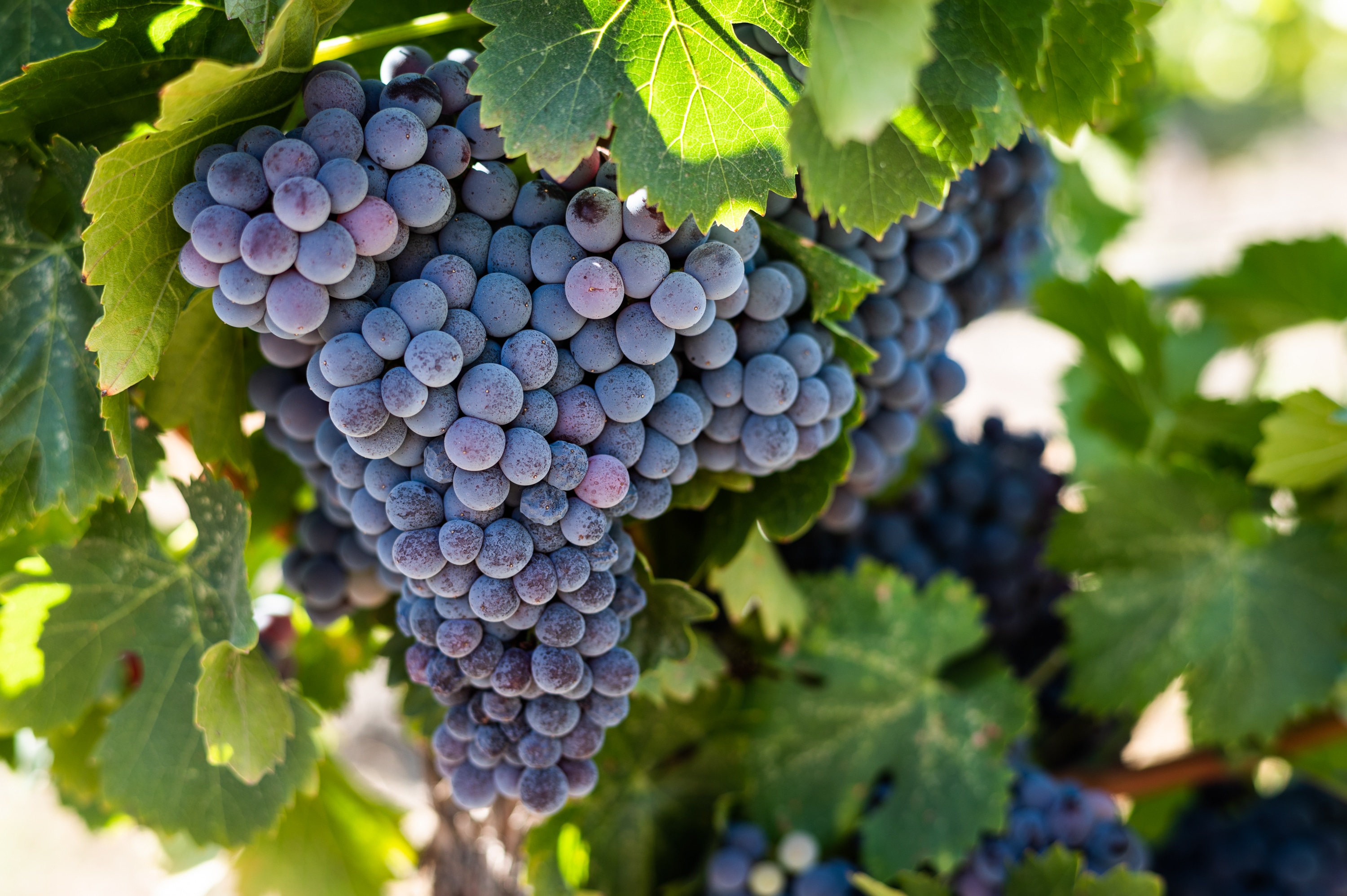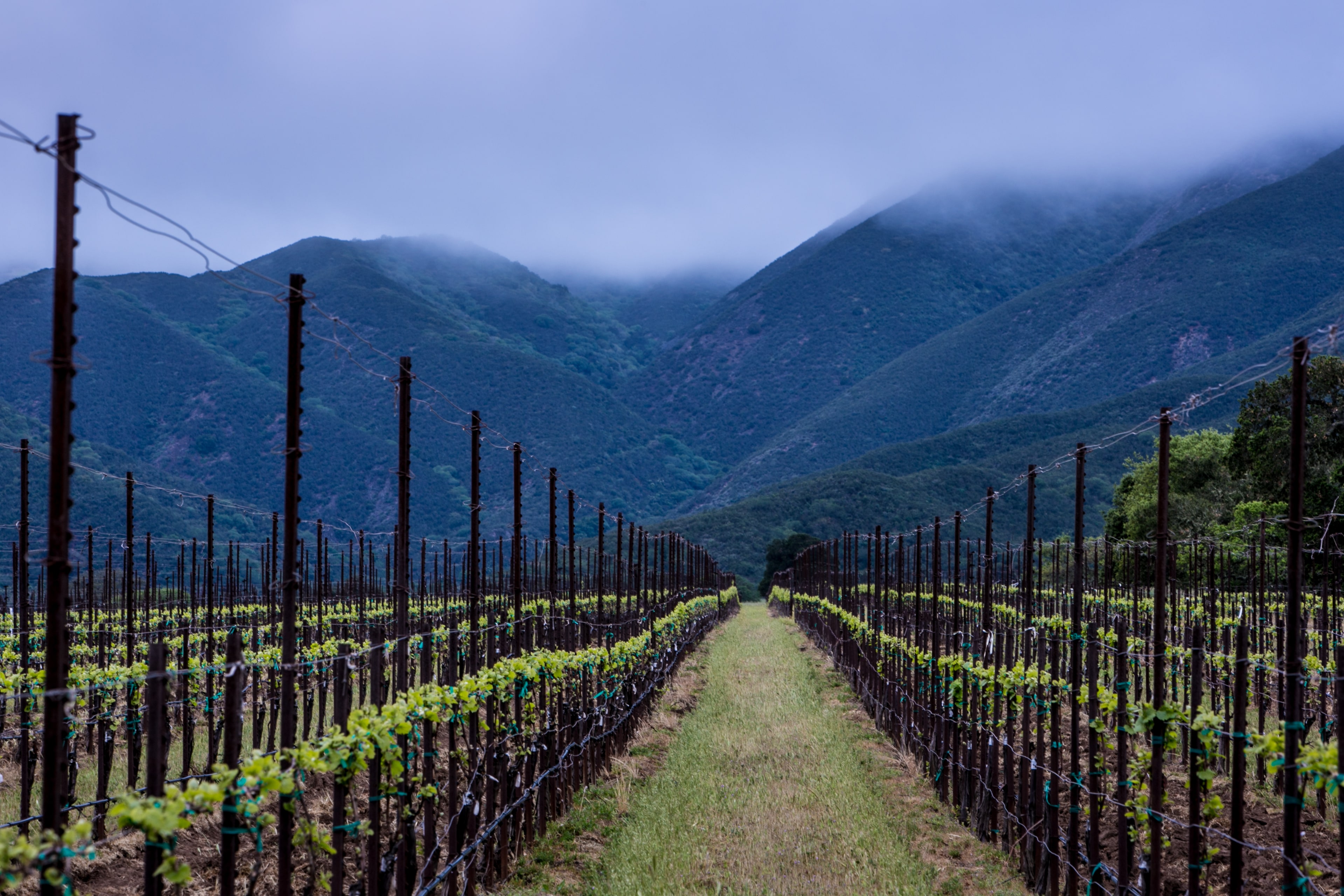There’s something magical, almost mysterious, about wine. The taste, the mouthfeel, that oh so relaxed feeling that comes with unwinding from a long day with a full-bodied Malbec or zesty Pinot Grigio. From watching it pour from a decadent decanter to taking that first, slow sip, it’s no doubt that drinking wine is an experience.
Whether you’re a fine wine devotee or occasional wine drinker, your appreciation for wine is about to grow tenfold.

Grenache grapes on the vine at Hope Family Vineyard, Paso Robles, CA Grenache grapes on the vine at Hope Family Vineyard, Paso Robles, CA
As we’re pushing for more sustainability in our lives, whether it’s the clothes we wear, the food we eat, or the car we drive, we’re longing for a more sustainable world, and part of that sustainable movement includes, you guessed it, winemaking.
But what, exactly, makes a wine sustainable?
 Grenache grapes on the vine at Hope Family Vineyard, Paso Robles, CA
Grenache grapes on the vine at Hope Family Vineyard, Paso Robles, CA
Grenache grapes on the vine at Hope Family Vineyard, Paso Robles, CAThe answer is complex, as many factors play into whether a wine is sustainable or not. Luckily, I had the pleasure of speaking with local wine expert, or “sommelier” Jillian Fontana, on what makes a wine sustainable or not.
Wineries in some locales can choose to become certified; the California Sustainable Wine Alliance recognizes these wineries as Certified California Sustainable Wine (CCSW), but many other wineries (or “producers” as they are known in the industry) opt to create their own sustainable plans of action.
In response to the question of whether sustainable wines taste better, Jillan explains, “A sustainable wine can be a truer expression of where the wine was derived; when utmost care for the grapes is given both in the vineyard and the winery, as is true with many sustainable practices – you can taste the better quality.”
She explains that sustainability in winemaking is more of a concept to better the planet rather than following a strict set of guidelines.
“How the grapes are cultivated is one aspect,” Fontana explains. “And then there is the actual winemaking in a winery: the fermentation of juice to the bottled product.”
The whole production of winemaking is taken into consideration of whether or not a wine is considered sustainable or not. It is a comprehensive combination of practices in the vineyard that keeps the health of the planet at the forefront.
From growing the grape to bottling the wine, those choices and decisions are made based upon what’s best for the planet.
A deep love for wine
While words like “organic,” and “natural” are often used interchangeably, they are not one in the same, especially when it comes to wine. “Organic” is always a certification, while “sustainable” can be a certification (several exist) or a practice, and “natural” has no bounds.
Fontana explains that it isn’t feasible for every vineyard to be certified organic; one reason being the cost. For very small producers, it can be prohibitive. “To get the certification is also laborious,” she adds. “Also, if you are in a climate that is prone to fungus, you have to use pesticides because you can’t afford to lose your crop.”
As for the taste, sustainable wines have more of a “quality” taste. Fontana illustrates her point by comparing a Hershey’s kiss to Godiva chocolate or Velveeta cheese in comparison with real cheddar. “You can just taste the difference,” she says, “Its depth of flavor, its nuance.”
 Before becoming a wine sommelier, Fontana started her career in hospitality, the wine tastings in the restaurants she worked in initially sparking her interest.
Before becoming a wine sommelier, Fontana started her career in hospitality, the wine tastings in the restaurants she worked in initially sparking her interest.
“In the early days, I bought the book, French Wine For Dummies, which I highly recommend because it made it so easy to understand the wines I was working with,” Fontana said.
She spent the next several years traveling, attending numerous industry wine tastings and events, with her first wine trip spent in Willamette Valley in Oregon, a very up-and-coming wine region at the time. She traveled to Bordeaux, France, completing the Grand Crus of Bordeaux course, and finally taking the Certified Somm exam administered by the Court of Master Sommeliers, the global standard setters for today’s sommeliers.
“At the end of the day, I’m really self-taught,” Fontana said. “I read a ton of books, went to all the tastings, experimented constantly with food and wine pairings.”
Now, Fontana has her own wine consulting business where she does private and corporate events, curates wine collections, and is most recently launching a custom wine program for restaurants in the area.
Fontana ultimately wants to educate people on being more confident with their wine choices and pairings, and not just reach for whatever bottle at the store is familiar. She is a huge supporter of natural and sustainable wines because they benefit both the palate and the Earth.•